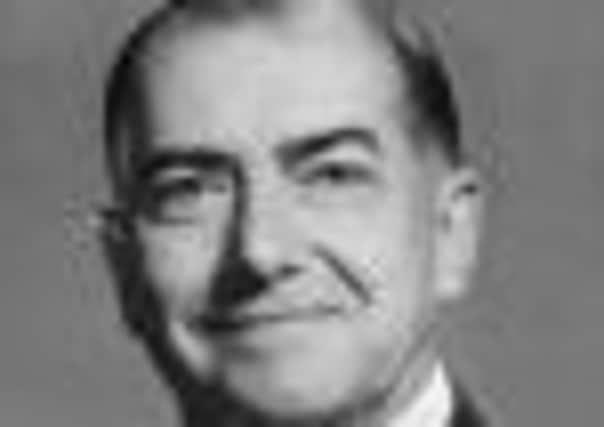Real Lives: Talented biologist never received deserved credit


Colleagues praised Prof Duguid as a scientist who possessed an outstanding mind and an ability to focus completely on the job at hand.
Prof Duguid’s work was key to advances in the understanding of penicillin, yet his contribution was unrecognised for many years after an American team published similar research and took the credit.
Advertisement
Hide AdAdvertisement
Hide AdThe son of Major General David Duguid and Mary Paris, James Duguid was born on July 10, 1919, in Bo’ness and educated at Shirley House in London and then Edinburgh Academy.
It was at Edinburgh Academy that his scientific prowess manifested itself, and he was awarded the dux in science there in 1936.
He later studied at Edinburgh University, where he graduated MB ChB Hons in 1942 and BSc with first class honours the following year.
After a period spent as house surgeon at Larbert Hospital, he entered the bacteriology department of Edinburgh University and was later appointed lecturer and reader.
Advertisement
Hide AdAdvertisement
Hide AdIn 1955, he discovered the structures, called fimbriae, which enable the virulence of E.coli and other bacteria. The advance also revolutionised the understanding of how antibiotics work.
Soon after this discovery, an American researcher published work on the same structures but called them pili. The latter name remains the main term of reference in the United States, something described as “unforgivable” by one of Prof Duguid’s colleagues, Prof JG Collee.
Prof Collee said: “His work on penicillin is not widely known and he did not get the credit for some of his original theories on the mode of action of the first, and still the best, of our antibiotics.
“He generated many new approaches to the airborne spread of infection and he was responsible for some of our important knowledge of antisepsis and disinfection.”
Advertisement
Hide AdAdvertisement
Hide AdProf Duguid went on to gain posts in bacteriology at St Andrews and Dundee universities, and was key to the establishment of the Dundee school of biological sciences.
He also served on the Scottish health service planning council and was an honorary member of the Pathological Society of Great Britain and Northern Ireland.
Prof Collee said: “He combined self-confidence in argument with the knowledge that he had done the necessary research beforehand.
“And his strange combination of assurance and humility was regularly in evidence.”
Predeceased by his wife Isobel and daughter Lesley, he is survived by his children Nigel, Catherine and Hazel, 16 grandchildren and six great-grandchildren.